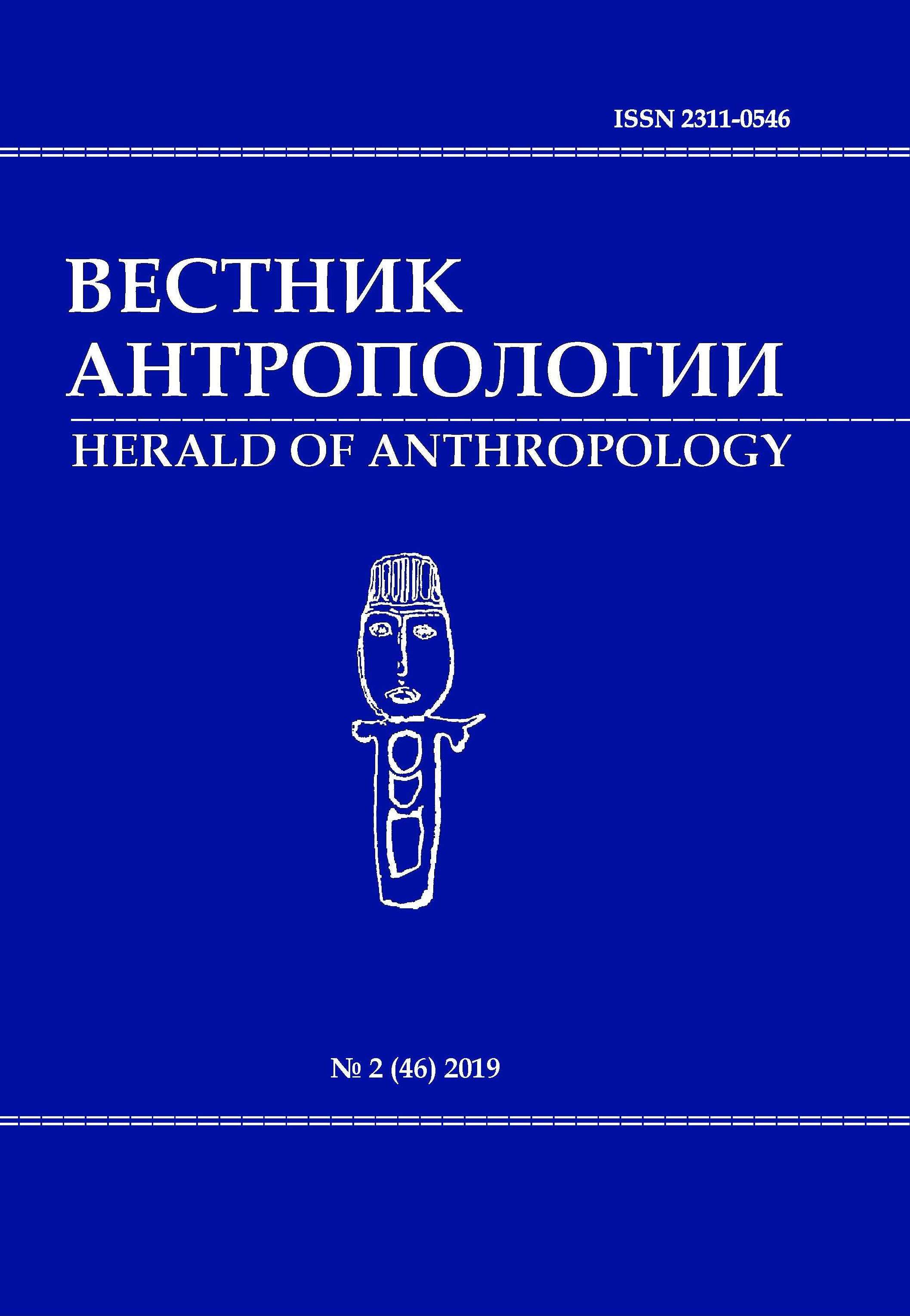Bernát Munkácsi and Finno-ugric studies in Hungary at the turn of 19–20 centuries
Doi: 10.33876/2311-0546/2019-46-2/140-149
Keywords:
Bernát Munkácsi, Finno-ugric studies, Hungary, Udmurts, Ob-Ugrians, field work, First world war.Abstract
The article presents a chronology of scientific research of the Hungarian linguist and ethnographerб who studied Finno-Ugric peoples – Bernát Munkácsi (1860–1937). The first scientific trip of B. Munkácsi took place in the summer of 1880 to the Hungarians speaking the Csángó dialect in Moldova province. The route of the expedition in 1885 led him to different ethnographic groups of the Udmurts. The longest trip was taken in 1888 to the Northern Urals and Western Siberia to the Ob-Ugric peoples. A special place is occupied by the analysis of his collecting work among prisoners of war during the First world war. The author of the fundamental volumes of folk poetry and ethnographic texts about Udmurts and Mansi, Munkácsi went down in the history of Finno-Ugric studies as one of the pioneers of field research and a humanist.
References
- Islaev, F.G. 2005. K voprosu ob istoricheskikh predposylkakh sistemy N.I. Il’minskogo [On the question of the historical background of the system N.I. Ilminsky]. Studia Slavica Finlandensia 22: 51–59.
- Kodolányi (jr), J., and A. Reguly. 1968. Popular beliefs and folklore tradition in Siberia, 17–26. Budapest: Akadémiai Kiadó.
- Korhonen, M. 1987–1988. Budenz József tudományos eredményei amai nyelvészet szemszögéből [József Budenz’s scientific results from the point of view of amai linguistics]. Nyelvtudományi Közlemények 89: 109–124.
- Kozmach I., and A.V. Egorov. 2015. Bernat Munkachi i nachalo polevykh rabot v vengerskoi lingvistike [Bernat Munkachi and the beginning of field work in Hungarian linguistics]. Izvestiya Volgogradskogo gosudarstvennogo pedagogicheskogo universiteta 9: 171–176.
- Kozmács, I. 2008. Megvalósult gyermekálom. Munkácsi Bernát udmurtföldi útja. Pozsony: AB-ART.
- Kozmács, I. 2010. The life of Bernát Munkácsi. Budapest: Pytheas.
- Kuznetsov, S.K. 1884. Zametki po povodu referata G.N. Potanina «U votyakov Elabuzhskogo uezda» [Notes on the abstract G.N. Potanin «At the wot of Elabuga district»]. Izvestiya Obshchestva arkheologii, istorii i etnografii pri Kazanskom universitete 3: 411–419.
- Munkácsi, B. 1883–1884. Votják nyelvtanulmányok [They take language studies]. Nyelvtudományi Közlemények 18: 428–447.
- Munkácsi, B. 1887/ Votják népköltészeti hagyományok [They are traditions of folk poetry]. Budapest: Magyar Tudományos Akadémia.
- Munkácsi, B. 1890–1896. A votják nyelv szótára [The Votian language dictionary]. Vol. 1–4. Budapest.
- Popov, N.S. 2005. Vklad S.K. Kuznetsova v izuchenie traditsii mariitsev i udmurtov [The contribution of C.K. Kuznetsova in the study of the traditions of the Mari and Udmurts]. Finno-ugrovedenie 1: 58–78.
- Rittikh, A.F. 1870. Materialy dlya etnografii Rossii: Kazanskaya guberniya [Materials for ethnography of Russia: Kazan Province]. Kazan.
- Roshchevskaya, L.P., and V.Ya. Chernysheva. 1987. Russkie i zarubezhnye zhurnaly nachala XX veka o puteshestviyakh B. Munkachi i D.R. Fokosh-Fuksa k finno-ugorskim narodam Rossii [Russian and foreign journals of the early 20th century on travels B. Munkachi and DR. Fokosh-Fuchs to the Finno-Ugric peoples of Russia]. Vengerskie uchenye i permskaya filologiya [Hungarian scientists and Perm philology], 109–114. Ustinov.
- Uvarov A.N. (ed). 1983. Podarok Munkachi. Pesni i skazaniya [Gift of Munkachi. Songs and legends]. Izhevsk: Udmurtia.
- Vamberi, A. 1865. Puteshestvie po Srednei Azii: opisanie pokhoda iz Tegerana cherez Turkmenskuyu step’ po vostochnomu beregu Kaspiiskogo morya v Khivu, Bukharu i Samarkand [Journey through Central Asia: a description of a hike from Tehran through the Turkmen steppe along the eastern shore of the Caspian Sea to Khiva, Bukhara and Samarkand]. St. Petersburg: print. Yu.A. Bokram.
- Vámbéry, H. 1885. Das Türkenvolk. Ethnologischen und ethnographischen Beziehungen [The Turk people. Ethnological and ethnographic relationships]. Leipzig: F.A. Brockhaus.
- Wichmann, Y. 1930. Wirkungen des Weltkrigs auf die finnisch-ugrische Völker und ihre wissenschaftliche Erforschung. Journal de la Société Finno-Ougrienne 44: 10–19.
- Wiedemann, F.J. 1851. Grammatik der Wotjakischen Sprache. Reval.
- Zagrebin, A.E. 2005. Kazan’ kak tsentr finno-ugorskoi etnografii [Kazan as the center of Finno-Ugric ethnography]. Studia Slavica Finlandensia 22: 96–117.
- Zagrebin, A.E. 2006. Finno-ugorskie etnograficheskie issledovaniya v Rossii (XVIII – pervaya polovina XIX v.) [Finno-Ugric ethnographic studies in Russia (XVIII – first half of the XIX century)]. Izhevsk: UIIYaL UrO RAN
- Zagrebin, A.E. 2009. «Tyurko-ugorskie voiny» v kontekste problemy etnicheskoi identifikatsii narodov Srednego Povolzh’ya i Priural’ya[«Turkic-Ugric wars» in the context of the problem of ethnic identification of the peoples of the Middle Volga and Ural region]. Etnos. Obshchestvo. Tsivilizatsiya: II Kuzeevskie chteniya [Ethnos. Society. Civilization: II Kuzeev readings], 34–36. Ufa.
- Zagrebin, A.E., and V.E. Vladykin. 2004. Töro udmurtskoi etnografii [Töro Udmurt ethnography]. In G.E. Vereshchagin i vzaimodeistvie kul’tur Uralo-Povolzhskogo regiona [G.E. Vereshchagin and the interaction of cultures of the Ural-Volga region], 19–23. Izhevsk: UIIYaL UrO RAN.





















